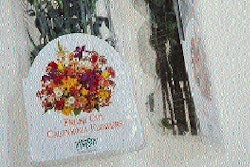The closely-watched ruling was a defeat for packagers and advertisers who warned that a proliferation of differing state laws would make national advertising and distribution of products difficult and could result in less information being provided to consumers. The law was challenged on first amendment grounds and those bringing suit said they might take the case to the Supreme Court. The FTC has national green marketing guidelines, and 18 states have laws regulating the use of environmental terms in advertising and labeling. California's law is considered the most strict. Words such as "recycled," "biodegradable," and "ozone friendly" may not be used on packaging unless the product meets definitions. The good news from California is that cups and hinged-lid and other plastic containers used for point-of-sale foodservice, bakery goods sold directly by the manufacturer to the end user, plus fresh meats, fish, poultry, vegetables and fruits are exempt from the state's Rigid Plastic Packaging Container Law.
Court says states can regulate packaging
California's detailed "green law" was upheld by a federal appeals court, which said states have a right to regulate packaging so consumers are not confused, in the same way deceptive advertising can be banned.
Jan 31, 1995
Machinery Basics
Annual Outlook Report: Automation & Robotics
What's in store for CPGs in 2025 and beyond? Packaging World editors explore the survey responses from 118 brand owners, CPG, and FMCG Packaging World readers for its new Annual Outlook Report.
Download
Annual Outlook Report: Workforce
Hiring remains a major challenge in packaging, with 78% struggling to fill unskilled roles and 84% lacking experienced workers. As automation grows, companies must rethink hiring and training. Download the full report for key insights.
Download Now
Downloads





















